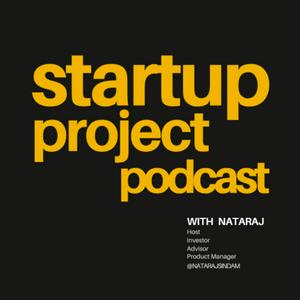How Chronosphere Solved Observability in Containerized Environments to Build $1.6B Company | Uber spin-out, 5x Cheap & Impact of AI in Observability | CEO Martin Mao | Startup Project #101
Martin Mao is the co-founder and CEO of Chronosphere, an observability platform built for the modern containerized world. Prior to Chronosphere, Martin led the observability team at Uber, tackling the unique challenges of large-scale distributed systems. With a background as a technical lead at AWS, Martin brings unique experience in building scalable and reliable infrastructure. In this episode, he shares the story behind Chronosphere, its approach to cost-efficient observability, and the future of monitoring in the age of AI.What you'll learn:The specific observability challenges that arise when transitioning to containerized environments and microservices architectures, including increased data volume and new problem sources.How Chronosphere addresses the issue of wasteful data storage by providing features that identify and optimize useful data, ensuring customers only pay for valuable insights.Chronosphere's strategy for competing with observability solutions offered by major cloud providers like AWS, Azure, and Google Cloud, focusing on specialized end-to-end product.The innovative ways in which Chronosphere's products, including their observability platform and telemetry pipeline, improve the process of detecting and resolving problems.How Chronosphere is leveraging AI and knowledge graphs to normalize unstructured data, enhance its analytics engine, and provide more effective insights to customers.Why targeting early adopters and tech-forward companies is beneficial for product innovation, providing valuable feedback for further improvements and new features. How observability requirements are changing with the rise of AI and LLM-based applications, and the unique data collection and evaluation criteria needed for GPUs.Takeaways:Chronosphere originated from the observability challenges faced at Uber, where existing solutions couldn't handle the scale and complexity of a containerized environment.Cost efficiency is a major differentiator for Chronosphere, offering significantly better cost-benefit ratios compared to other solutions, making it attractive for companies operating at scale.The company's telemetry pipeline product can be used with existing observability solutions like Splunk and Elastic to reduce costs without requiring a full platform migration.Chronosphere's architecture is purposely single-tenanted to minimize coupled infrastructures, ensuring reliability and continuous monitoring even when core components go down.AI-driven insights for observability may not benefit from LLMs that are trained on private business data, which can be diverse and may cause models to overfit to a specific case.Many tech-forward companies are using the platform to monitor model training which involves GPU clusters and a new evaluation criterion that is unlike general CPU workload.The company found a huge potential by scrubbing the diverse data and building knowledge graphs to be used as a source of useful information when problems are recognized.Subscribe to Startup Project for more engaging conversations with leading entrepreneurs!→ Email updates: https://startupproject.substack.com/#StartupProject #Chronosphere #Observability #Containers #Microservices #Uber #AWS #Monitoring #CloudNative #CostOptimization #AI #ArtificialIntelligence #LLM #MLOps #Entrepreneurship #Podcast #YouTube #Tech #Innovation
